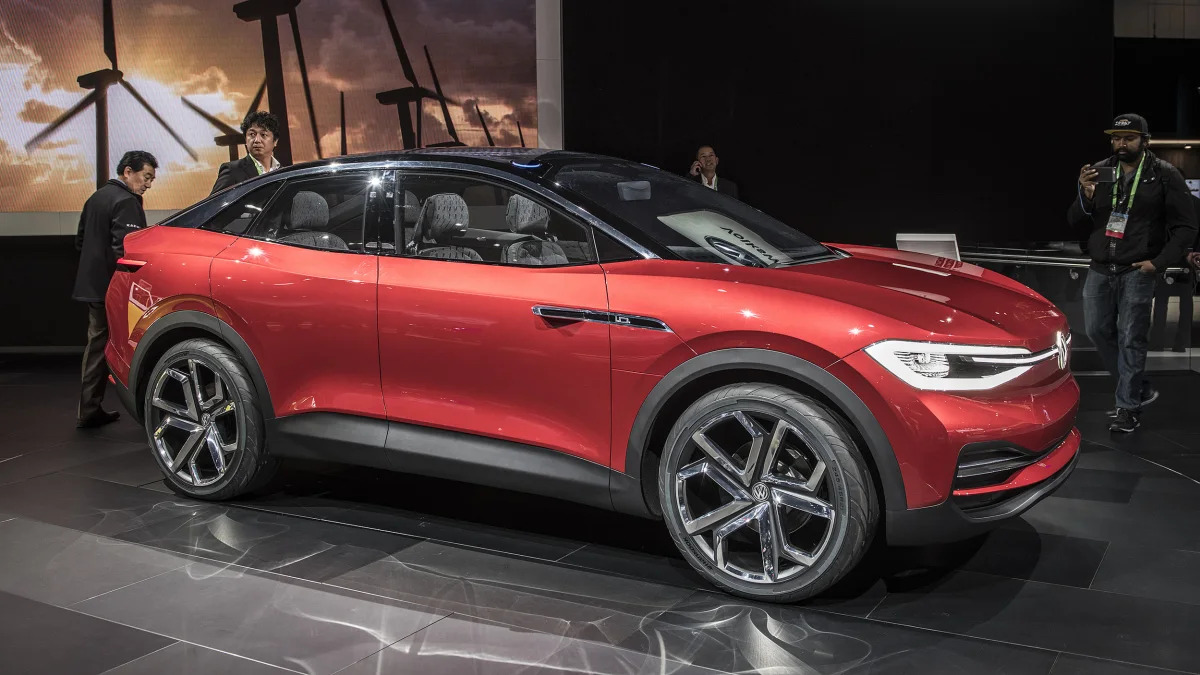Last month, Thomas Ulbrich, the Volkswagen brand's board member for E-mobility, spoke to an audience in Dresden, Germany, about VW's plans for pure electric vehicles. One of the nuggets we noted was Ulbrich saying that the first EV, the I.D. hatchback that could be called Neo, will undercut the Tesla Model 3 by roughly $8,000. We'll assume he means the base $35,000 Model 3, but regardless, that comparison was mere detail: Ulbrich said the brand's overall strategy is selling EVs "priced at the level of a comparable diesel car."
Before diesel became the Voldemort of fuels, buyers understood the nominal premium they paid for diesel's rewards. If Volkswagen maintains the same MSRP restraint with an EV, the automaker has a much better chance of powering its goal of selling 1 million EVs across the VW, Audi, Skoda and Seat nameplates by 2025.
Doing the math on what this kind of pricing strategy could look like, we can examined the diesel price spread pre-Dieselgate. The 2015 Volkswagen Jetta 1.8T SE FWD with a five-speed manual ran $18,995, whereas the TDI SE FWD with a six-speed manual started $21,640, a 9 percent increase. The standard 2015 Touareg V6 Sport w/Technology AWD cost $48,755, while the Touareg TDI Sport w/Technology AWD cost $52,245, a 7 percent upcharge. If Volkswagen indeed has this kind of single-digit gap in mind, then its tagline for its coming EVs would prove true: "electric vehicles for millions, not millionaires."
The all-electric I.D. line and its pricing will take getting used to when it comes to size. WardsAuto reported at the beginning of the year that the I.D. cars will get MSRPs in line with the segment, but "based on each model's interior volume." Packaging on the MEB platform means more cabin room for the same footprint compared to an ICE vehicle. That means the I.D. Crozz, about the size of a Tiguan and the first of the I.D.s expected to come to the U.S. in 2020, is about the size of an Atlas inside and, according to Wards, "will be priced similarly to Atlas before government incentives."
If we took the Atlas 3.6L V6 S Tiptronic FWD (skipping the base Atlas 2.0) that starts at $32,150, and added a premium akin to diesel pricing, say 10 percent, we're at $35,365 for an electric SUV with three-row roominess and a range of more than 200 miles on the U.S. cycle before a potential $7,500 federal incentive. That's for the entry-level battery pack; VW has at least one more pack that should provide more than 300 miles, and another rumored pack with some kind of whopping range. Utilizing a fast-charger, each of those packs should get 80 percent of their range back in 30 minutes. We have two years to see if this dream comes true.
Related Video:
Before diesel became the Voldemort of fuels, buyers understood the nominal premium they paid for diesel's rewards. If Volkswagen maintains the same MSRP restraint with an EV, the automaker has a much better chance of powering its goal of selling 1 million EVs across the VW, Audi, Skoda and Seat nameplates by 2025.
Doing the math on what this kind of pricing strategy could look like, we can examined the diesel price spread pre-Dieselgate. The 2015 Volkswagen Jetta 1.8T SE FWD with a five-speed manual ran $18,995, whereas the TDI SE FWD with a six-speed manual started $21,640, a 9 percent increase. The standard 2015 Touareg V6 Sport w/Technology AWD cost $48,755, while the Touareg TDI Sport w/Technology AWD cost $52,245, a 7 percent upcharge. If Volkswagen indeed has this kind of single-digit gap in mind, then its tagline for its coming EVs would prove true: "electric vehicles for millions, not millionaires."
The all-electric I.D. line and its pricing will take getting used to when it comes to size. WardsAuto reported at the beginning of the year that the I.D. cars will get MSRPs in line with the segment, but "based on each model's interior volume." Packaging on the MEB platform means more cabin room for the same footprint compared to an ICE vehicle. That means the I.D. Crozz, about the size of a Tiguan and the first of the I.D.s expected to come to the U.S. in 2020, is about the size of an Atlas inside and, according to Wards, "will be priced similarly to Atlas before government incentives."
If we took the Atlas 3.6L V6 S Tiptronic FWD (skipping the base Atlas 2.0) that starts at $32,150, and added a premium akin to diesel pricing, say 10 percent, we're at $35,365 for an electric SUV with three-row roominess and a range of more than 200 miles on the U.S. cycle before a potential $7,500 federal incentive. That's for the entry-level battery pack; VW has at least one more pack that should provide more than 300 miles, and another rumored pack with some kind of whopping range. Utilizing a fast-charger, each of those packs should get 80 percent of their range back in 30 minutes. We have two years to see if this dream comes true.
Related Video:










Sign in to post
Please sign in to leave a comment.
Continue